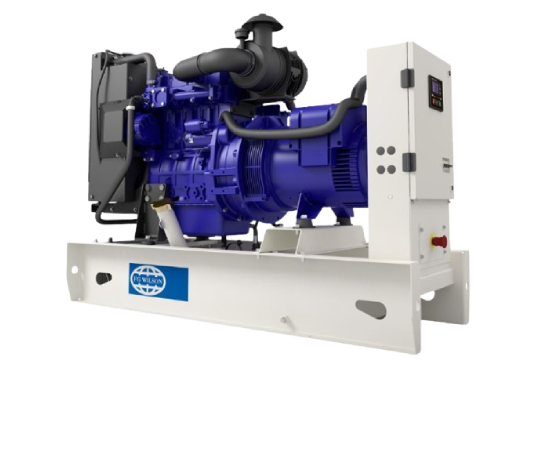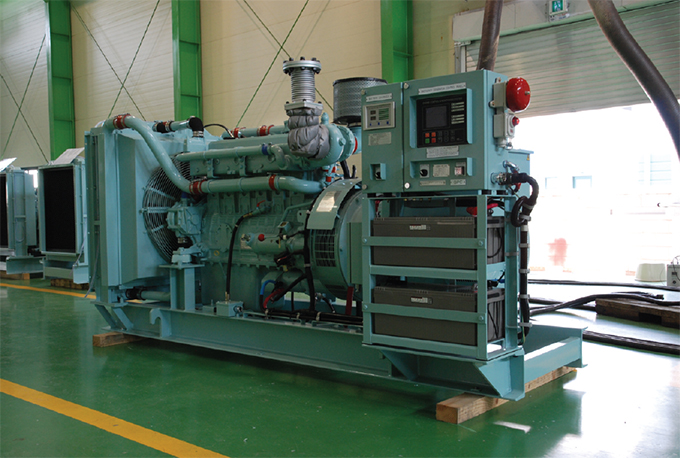Introduction
In an era where renewable energy technologies are advancing rapidly and sustainability dominates global discussions, it’s easy to assume that traditional power sources are becoming obsolete. However, the reality on the ground in many developing regions tells a different story. Across Africa — and particularly in Tanzania — diesel generators continue to play a crucial role in powering communities, industries, and institutions. Far from being outdated, these machines form the backbone of energy reliability in a country still working toward universal access to stable electricity.

The Backbone of Reliability
When discussing modern energy infrastructure, it’s impossible to overlook the continued importance of the Diesel Generator in Tanzania. Despite the government’s push for renewable energy expansion and improved grid connectivity, challenges such as fluctuating power supply, remote area electrification, and emergency backup requirements keep diesel generators highly relevant.
In many rural parts of Tanzania, the national grid has not yet reached households, businesses, or health centers. Diesel generators bridge this gap, ensuring that essential services—such as hospitals, schools, and local industries—remain operational. Even in urban centers, where grid access is better, generators provide a dependable power backup during outages, preventing costly interruptions in manufacturing, banking, and telecommunications.
Energy Gaps and Grid Limitations
The Reality of Tanzania’s Energy Landscape
Tanzania’s energy sector has made impressive progress in recent years. Investments in hydropower, natural gas, and solar energy have expanded the grid’s capacity. However, these systems still face limitations, particularly in maintaining consistent voltage and supply. Seasonal variations, especially in hydro-dependent regions, can lead to shortages during dry months, leaving entire districts vulnerable to blackouts.
The Role of Decentralized Power
Diesel generators fill this reliability gap. Their decentralized nature allows for quick deployment and flexibility across diverse sectors—from powering small businesses in Dar es Salaam to driving irrigation pumps in rural farming communities. Unlike grid-dependent sources, generators can be installed anywhere, offering immediate and controllable power where it’s most needed.
Industrial Dependence and Economic Significance
Powering the Manufacturing Sector
The manufacturing and construction industries rely heavily on steady power for productivity. Interruptions in electricity can halt machinery, spoil materials, and delay projects, leading to significant financial losses. Many factories and industrial parks in Tanzania maintain generator systems as part of their operational design, ensuring production continues even during grid failures.
Supporting Critical Infrastructure
From hospitals to data centers, reliable electricity is not optional—it’s essential. Generators provide backup power for medical equipment, refrigeration, and emergency lighting. In the telecommunications sector, diesel-powered systems maintain connectivity in remote regions where solar or wind installations are impractical or insufficient. In this way, generators safeguard the continuity of essential public and private services that keep the country functioning smoothly.
Technological Advancements: Cleaner, Smarter, and More Efficient
Modern diesel generators are far more advanced than the models of the past. Manufacturers are focusing on efficiency, emissions reduction, and smart monitoring systems. Today’s generators consume less fuel, produce fewer emissions, and integrate easily with hybrid systems that include solar or wind energy.
The second reference to Diesel Generator in Tanzania becomes even more relevant here—modern technology is making these systems an indispensable part of transitional energy strategies. Instead of competing with renewables, diesel units are increasingly complementing them. For instance, hybrid setups allow solar energy to meet daytime demand while generators cover nighttime or cloudy periods, ensuring uninterrupted power supply with reduced fuel usage.
Smart Monitoring and Remote Management
Many new generator models come with remote monitoring capabilities. Facility managers can now track performance, fuel levels, and maintenance needs in real-time. This innovation not only improves operational efficiency but also extends the lifespan of equipment, reducing overall costs.
Toward a Lower-Emission Future
Tanzania is also exploring the use of biodiesel and cleaner fuels to power generators, aligning with global environmental goals. With proper regulation and maintenance, diesel generators can continue to operate sustainably alongside other green technologies.
The Role in Rural Development
Empowering Agriculture and Small Enterprises
In the agricultural heartlands of Tanzania, power supply directly impacts productivity. Generators are used to run irrigation systems, grain mills, and cold storage units—crucial components for food security and economic development. Small enterprises, from welding workshops to retail shops, also rely on generator power to sustain operations and serve their communities.
Expanding Access in Remote Regions
For many rural districts, waiting for grid expansion could take years. Diesel generators offer an immediate solution, allowing schools to operate computers, clinics to store vaccines, and homes to access basic lighting and power. Their portability and ease of maintenance make them ideal for environments where infrastructure development is still catching up.
Balancing Energy Transition with Practical Needs
While Tanzania’s long-term goal is to expand renewable energy generation, diesel generators remain the most practical and affordable option for many sectors today. The transition toward cleaner energy will take time, investment, and technological adaptation. Until then, diesel power continues to provide the stability and reliability that the growing economy depends on.
Hybrid energy systems—combining diesel, solar, and battery storage—represent the most promising path forward. These systems blend the reliability of generators with the sustainability of renewables, creating a balanced energy ecosystem for both urban and rural Tanzania.
Conclusion
In the journey toward sustainable energy independence, Tanzania stands at a crossroads. While solar, wind, and hydro power will undoubtedly define the future, diesel generators remain an irreplaceable part of the present. They ensure continuity in essential services, drive industrial productivity, and empower communities far from the reach of the national grid.
For now, the diesel generator remains more than just a machine—it is a lifeline. As technology continues to evolve, Tanzania’s challenge will be to integrate these reliable assets into a cleaner, more efficient energy framework. Until then, they will continue to serve as the quiet engines powering progress, resilience, and growth across the nation.
 WhatsApp Us Now
WhatsApp Us Now








